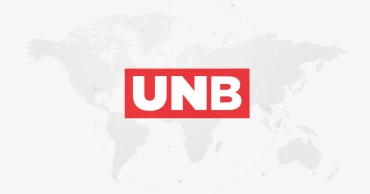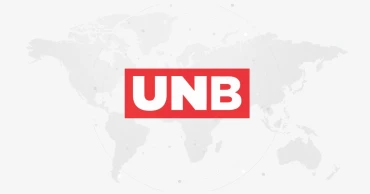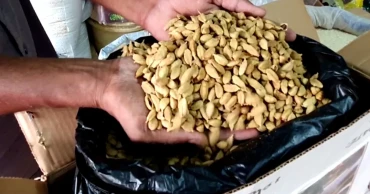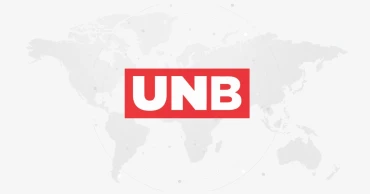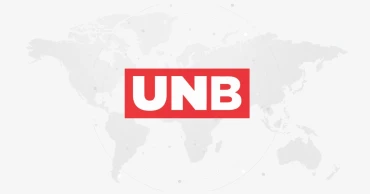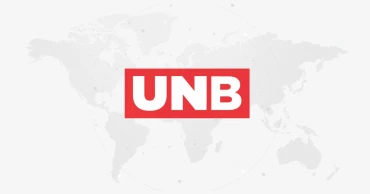commodity price hike
Traders propose raising edible oil prices by Tk 10 per litre as VAT exemption period ends
Traders have proposed increasing the prices of edible oil by Tk 10 per litre as the tax exemption deadline on it expired on April 15.
Bangladesh Vegetables Oil Refiners' and Vanaspati Manufacturer's Association (BVORVMFA) sent a letter to the senior secretary of the commerce ministry in this regard on Monday.
The letter was issued by executive officer of BVORVMFA Nurul Islam Mollah.
Dhaka district receives lion's share of remittances so far in current fiscal: BB Report
The letter stated that as tax exemption on the import of raw materials and production of edible expired on April 15 so it will be supplied at the prices fixed before the exemption of VAT.
As per new rate, a litre bottle of soybean oil will be sold at Tk 173, while 5 litre bottle at Tk 845 and a litre palm oil at Tk 132.
In February the National Board of Revenue reduced the Value Added Tax on refined and crude (non-refined) soybean and palm oil to 10 percent from 15 percent.
However, state minister for commerce Ahasanul Islam Titu at a meet the press at Dhaka Reporters ‘Unity on Tuesday said there is no scope to hike prices of edible oil.
All factories have paid March salaries and Eid bonuses: BGMEA President
He said the edible oil price can be adjusted with the international market rate but it will take time.
The state minister also said the price hike would be considered on the import of new shipment of the edible oil.
1 year ago
Businesses should get opportunities to turn around before wholesale declaration of loan defaulters: FBCCI President
Mahbubul Alam, the new president of the country’s apex trade body, the Federation of Bangladesh Chambers of Commerce and Industry (FBCCI), has already written to Bangladesh Bank asking for opportunities for businesses struggling to pay instalments against loans to turn around their fortunes before declaring them as loan defaulters.
He also believes heightened inflation is a global issue, rather than unique to Bangladesh, as prices of daily essentials and energy prices have witnessed spikes across the world, including the USA and Europe.
Bangladesh is trying to curb inflation, but the global supply chain disruption creates crises on the supply side, which is the cause of the price hike in some cases, he pointed out.
Talking to UNB, Mahbubul Alam gave his opinions on different issues including inflation, the dollar crisis, export diversification, and the challenges in achieving the Sustainable Development Goals.
Read: Mahbubul Alam takes charge as FBCCI president
Alam was elected as the new president of the FBCCI as a leader of the Sammilito Oikko Parishad, for the 2023-25 tenure. The election was held on July 31 and he took charge as president on August 14. He also serves as President of the Chittagong Chamber of Commerce & Industry (CCCI).
Beyond his business acumen, Mahbubul Alam has received recognition in the form of CIP (Trade) and CIP (Industry) Awards from the Ministry of Commerce, Bangladesh. He is also a committed philanthropist, contributing to various social causes.
Internationally, he is the recipient of a "Certificate of Merit" from the World Customs Organization.
Alam said in the present economic reality, suppose an entrepreneur has 12 factories; among them one or two will have fallen into problems, but the other 10 would be running well. In this situation, if the business group was declared as defaulter, the entrepreneur would not run the other factories, and a large number of employees would lose their jobs.
Read: Large defaulted loans have distressed domestic economy: Experts
He acknowledged that in the last two years, a huge volume of loans went into default as many businessmen are not paying their instalments. The FBCCI president said, the federation (FBCCI) has already written a letter to the Bangladesh Bank (BB) to not declare any company as defaulter without understanding the reality.
He suggested running the factories as an option to get a return. He opposed wholesale declaration of loan defaulters rather than giving opportunities to improve.
Alam agreed that the businessmen have to return the loan money, otherwise the banks will be in trouble.
Regarding the dollar crisis, the FBCCI president emphasised enhancing remittance earnings by sending more skilled human resources abroad, along with the unskilled manpower already being sent.
Read more: Banks’ chief executives must bear responsibility to control defaulted loans: BB Governor
He also urged the government to develop a system through which remittances could be sent easily to Bangladesh using legal channels from the Middle East and other areas of the world.
Alam, the owner of Chattogram-based M/S Alam Trading, also emphasised enhancing the capacity of foreign missions of Bangladesh so that those missions can arrange trade fairs to display different traditions and non-traditional products as part of the export diversification campaign.
Regarding SDG achievement, the FBCCI president said the capacity of domestic businesses must increase to compete with global manufacturers in the age of free trade.
Alam said, “Despite different types of obstacles and unfavourable environment, the entrepreneurs of Bangladesh have survived and continued running their businesses even during the Covid-19 pandemic period.”
Read more: BGMEA delegation meets Investment Board Chairman of Kurdistan regional government to discuss investment opportunities
The FBCCI president emphasised massive research and innovation activities involving youths for Bangladeshi companies to cope with the requirements of the 4th Industrial Revolution,
However, he doesn’t buy into the hype that Artificial Intelligence or machine learning will affect employment in Bangladesh, as he believes many jobs still exist that require a human hand.
The FBCCI president also focused on increasing domestic rearing of chicken, pigeons, cows, and goats which will help to meet a large portion of the consumption demand for eggs, milk, and meat.
It is not possible to supply readymade products, eggs, meat, milk, and other essential items to everyone, he said. Some people have to develop self-dependency when it comes to agricultural items, he pointed out.
Read more: BGMEA, Erbil chamber of industry intend to collaborate in promoting bilateral trade
2 years ago
With higher spice prices, consumers feeling the pinch this Eid-ul-Azha
Prices of almost all spices have doubled in a year, and consumers are particularly feeling the pinch ahead of Eid-ul-Azha when consumption of spices is high.
Despite sufficient stock and import of essential spices, traders at both wholesale and retail level hiked the prices of onion, ginger, garlic, cardamom, cinnamon, clove, cumin, turmeric, and coriander.
SM Nazer Hossain, vice-president of the Consumers’ Association of Bangladesh (CAB), told UNB that prices of essential commodities have already gone up, and the hike in prices of spice will further burden the already hard-up low- and middle-income people.
Though there is enough stock of spices to meet the demands during Eid, traders are indiscriminately hiking the prices to make more profit – due to lack of proper monitoring, he said.
Spice prices soar in Faridpur ahead of Eid-ul-Azha
According to the Trading Corporation of Bangladesh (TCB), on June 22, 2022, cumin was sold at a minimum price of Tk 380 and a maximum of Tk 450 per kg. The price of cumin has increased more than twice in one year.
Before Eid-ul-Azha, other spices are also beyond the reach of low-income people. Prices of most spices, including locally grown onion, garlic, dried chillies, green chillies, turmeric, ginger, and cinnamon have increased.
Among them, the prices of ginger and garlic have almost doubled. The UNB correspondent’s visits to Shyambazar, and Karwan Bazar – two major wholesale and retail markets in Dhaka – confirmed the latest prices today (June 24, 2023).
There were enough stocks of ginger imported from Myanmar, Vietnam, and Indonesia in Shyambazar on Friday. The wholesale price of ginger is Tk 120 to Tk 250 per kg depending on the quality. In Karwan Bazar, the retail price was Tk 250 to Tk 350 per kg.
TCB said that even a year ago, ginger was sold between Tk 60 to Tk 100 per kg at the retail level.
Spice prices shoot up ahead of Eid despite sufficient stock
Traders say that China is the biggest supplier of ginger in the country. But due to its high price, Chinese ginger is not available in the country right now. Stock of Indian ginger is also low in the market. Mainly because of this, the price of ginger has more than doubled within a year.
The price of dried chilli has also increased. A year ago, dried chillies were sold at Tk 220 to Tk 250 per kg, but this year, it is being sold at Tk 300 to Tk 340 per kg. Indian dried chillies are being sold at a higher price of Tk 380 per kg. In retail markets, such as Karwan Bazar, the price of imported dried chillies has also gone up to Tk 480 per kg.
Coriander is being sold at Tk 165 to Tk 220 per kg, cloves at Tk 1,500 to Tk 1,600 and cinnamon at Tk 410 to Tk 480 per kg in Karwan Bazar, Shyampur and Sutrapur Bazar.
According to TCB, a year ago, coriander was sold at Tk 120 to Tk 150, cloves at Tk 1,050 to Tk 1,200 and cinnamon at Tk 400 to Tk 450 per kg.
Traders say that due to the dollar crunch, importers are not able to import enough spices. The prices of some species are high in the global market as well.
No shortage of spices in market ahead of Eid: Spice Traders Association
Import costs have also increased. Apart from that, the production cost of spices in the country has also gone up due to the increase in fertiliser, fuel, and labour costs. Also, the cost of transportation is high. Mainly due to these reasons, the price of spices has gone up.
2 years ago
Budget not based on IMF conditions: Finance Minister
Bangladesh's Finance Minister AHM Mustafa Kamal has said that the national budget for the fiscal year (FY) 2023-24 was not based on the conditions of the International Monetary Fund (IMF).
"Like in different countries, the IMF has come to Bangladesh and made some recommendations to help the economy. We took their prescriptions as per our needs, but did not follow them all in preparing the budget," he said while addressing a post-budget press conference at the Bangabandhu International Conference Centre (BICC) in the city on Friday (June 2, 2023).
He said the IMF is not helping the countries only by providing money, they also monitor the economy. This is good for the economy.
Responding to a repeated number of questions on inflation and commodity price hike, the finance minister said the government is concerned about the rising trend in inflation.
Read more: Unrealistic budget won’t help overcome economic crisis: Fakhrul
"We're apprehensive about inflation, but it is not beyond our control. We cannot stop feeding the people," he said.
He said the government is approaching in a flexible way to contain inflation. Through social safety-net programmes, the government has been providing food to poor people.
"We're trying to identify the reasons for inflation and address those. If we need to give any concession, we will do that," he said.
Agriculture Minister Abdur Razzaque, LGRD Minister Tajul Islam, Education Minister Dipu Moni, Commerce Minister Tipu Munshi, Finance Secretary Fatima Yasmin, Bangladesh Bank Governor Abdur Rouf Talukder, and National Board of Revenue (NBR) Chairman Abu Hena Rahmatul Munim were among others also addressed on the occasion.
Read more: CPD dismisses budget's projections on growth, inflation, revenue collection
The Finance Minister claimed that the new budget was mainly focused on benefiting the poor people.
"We have expanded our tax net so that more taxes could be collected. Everybody has to pay tax," he said, adding that like other budgets in the past this was also prepared targeting both the next election and the people.
"We cannot separate the people or the election from our goal of the budget," he said.
Responding to another question, he said that all the projections made in the previous budgets were implemented.
Kamal said Bangladesh has been well placed in remittance earnings among the countries in the region.
Read more: Budget 2023-24: Govt allocates Tk88,162 crore in education sector, up 8.2%
After a downward trend, remittance earning is again increasing and we can meet five months of our import bill through our reserve.
He said after some measures taken by the government, the inflow of remittance will gradually go up.
At the press conference, with the request of the Finance Minister, Bangladesh Governor Abdur Rouf Talukder responded to a good number of questions, specially, on inflation, remittance and banking sector.
He said that Bangladesh Bank will announce its monetary policy on June 19 where it will lay out the plan on containing inflation, and increasing remittance and reserve.
He claimed that though the government's loan from the banking system is increasing, it will not push up inflation as the central bank is withdrawing more money from the market through selling dollars.
Read more: Budget sets 7.5 percent annual economic growth, inflation at 6 percent
2 years ago
‘Eat chicken feet’: Egypt’s govt recommendation faces vehement criticism from citizens
A recommendation from Egypt’s government – to eat chicken feet – has come under vehement criticism from the country’s citizens.
Egypt, the most populous country in the Arab world, is currently experiencing a record currency crisis and the highest inflation in five years, which has made food so costly that many Egyptians are no longer able to purchase chicken, a staple item.
The most recent dietary advice from the state recommended preparing chicken feet, a protein-rich part of the bird that is often kept for dogs and cats, according to a BBC report published yesterday.
Egypt is one of the countries suffering the most from skyrocketing inflation, which surpassed 30 percent in March.
Read More: Argentines struggle to make ends meet amid 100% inflation
Cooking oil and cheese, which were once reasonable necessities for many, have become unaffordable luxuries. Some product prices have doubled or tripled within a matter of months.
The BBC report quoted Wedad, a mother of three in her 60s, as saying: “I eat meat once a month, or I don’t buy it at all. I buy chicken once a week.”
Egypt is under a lot of strain in part because it relies significantly on imported food rather than homegrown agriculture to support its over 100 million-strong population.
Even the grain used to feed the chicken is imported.
Read More: Why another high inflation report may not cause Fed to hike
In comparison to the US dollar, the Egyptian pound lost half of its value over the course of a year. As the government depreciated the currency once more in January, the price of imports such as grain rose dramatically.
President Abdel Fattah el-Sisi frequently attributes his country's present economic troubles on the chaos that preceded the 2011 Egyptian revolt and fast population growth. In addition, he mentions the epidemic that followed the conflict in Ukraine.
The Russian invasion of Ukraine had a devastating effect on Egyptian economy. Egypt is the second largest wheat importer in the world, and the two countries were its principal suppliers. As a result of the disruption of exports due to the war, price of wheat and bread skyrocketed.
Russian and Ukrainian tourists used to visit Egypt in droves; the tourism industry has also suffered financial losses. Tourism, which used to account for around 5% of Egypt’s GDP, has been severely impacted by the Covid-19 pandemic.
Read More: In the EU’s inflation crisis, the humble egg takes the cake
Egypt has requested a bailout from the International Monetary Fund four times in the previous six years due to its economic difficulties. These debts, which account for 90% of GDP, consume nearly half of the state’s revenues.
Gulf nations such as the United Arab Emirates and Saudi Arabia have purchased state assets and are aiding Egypt, but they have also toughened their requirements for future investments.
2 years ago
Commerce, Home ministries coordinating govt's tough stance on price gouging ahead of Ramadan
This year's Ramadan is still a couple of days away, but a segment of traders already appears eager to increase profit margins by raising the prices of different commodities.
The government of Bangladesh however claims to be on to them, and has taken various initiatives to keep the market stable during the holy month.
Prime Minister Sheikh Hasina has directed officials to increase surveillance across the country so that dishonest businessmen cannot make excessive profits. She particularly instructed the field-level administration to be on alert. The Commerce Ministry has said it will keep an eye on the traders so they cannot destabilize the market by creating any artificial crisis.
Even detectives from the law enforcement agencies under the Home Ministry have been instructed to keep their eyes open so that unscrupulous syndicates do not create an artificial crisis in Ramadan.
Read: Dates, fruits to be more costly during Ramadan due to LC opening crisis
In the past, it was noticed that traders increased the prices of goods several times before the start of market supervision ahead of Ramadan. Just before Ramadan, the demand for items like edible oil, sugar, pulses, chickpeas, spices, and so on increases. Traders take this opportunity and raise the prices of in-demand items. It is no different this time.
“Ramadan is a few days away. Like last year, I have bought sugar, pulses, and chickpeas at a much higher price. Every year the same thing happens. There is also an upswing in the vegetable market,” Wahid Fakir, a resident of Bhatara New Market, told UNB.
The prices of sugar, oil, ginger, onion, and other essential goods have all increased in the last week. Vegetables, fish, and meat prices are also going up. Although there is also no shortage of edible oil in the market, daily essentials are selling at an increased price rate every week.
"This year we are already on alert from before. No one will be spared, if there is an artificial crisis in the market. We, the local administration, including the law enforcement agencies, and consumer rights protection directorate, will continue to monitor the market with mobile courts,” Commerce Minister Tipu Munshi told UNB.
Read: People forced to return home with bags half full due to higher prices of chicken, meat, fish
“As preparation for Ramadan, I have had meetings with businessmen one to two months ago. That's when we asked them to increase imports. In particular, instructions have been given so that the banks open the LCs quickly for the import of food products,” he said.
“The government has taken all kinds of necessary initiatives to keep the prices of goods under control during Ramadan. We have warned the traders about the preparations in advance this year. Controlling commodity prices was a challenging affair at this time of global crisis and rise in dollar rate,” he also said.
“Despite this, dollars have been provided for import of all food products commonly used in Ramadan. Besides, the ministry has requested the NBR to reduce the duty and VAT to reduce the prices of commodities like sugar and edible oil,” said the minister. “In addition, we are taking several other programmes to control the prices of goods during Ramadan. Apart from the family card allocated for 1 crore families, sugar and chickpeas will be sold in truck-sales in Dhaka and divisional cities. NBR has also extended the time for import of rice by three more months."
“Hopefully, the prices of goods will be stable during Ramadan. The government's preparation in this regard is good enough,” added Tipu Munshi.
Read More: Have enough stock, no scope of price hike during Ramadan: Tipu
Asked about the role of law enforcement agencies in keeping the market stable during Ramadan, Home Minister Asaduzzaman Khan said, "The law enforcement agencies have been instructed to prevent the rise in the prices of goods.”
“Detectives have already been instructed to keep an eye so that unscrupulous syndicates do not create any artificial crisis around Ramadan and make the market unstable. Several strict steps have been taken, including conducting mobile courts, to control the prices of consumer goods by suppressing syndicates,” he said.
“Various strategies are being formulated to prevent artificial crises in the market and to take action against those who stockpile goods. Along with the police, the law enforcement agencies and consumer rights department, including RAB, will be active in the field, the intelligence surveillance will also be increased,” he also said.
Cabinet Secretary Mahbub Hossain said, “If there is an abnormal situation in the market, we can enforce the law. Every deputy commissioner has been told about this. They will monitor it very strictly. We will also monitor from here.”
Read More: Make marginal profit in Ramadan, Munshi urges businessmen
2 years ago
